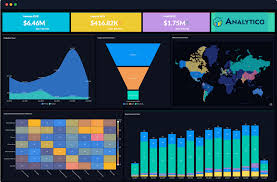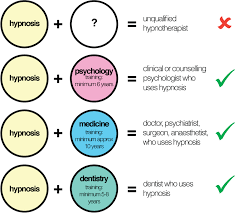Development is a term that refers to the process of growth and progress. It can be applied to many different areas of life, from personal growth and development to economic and social development. In any context, development requires effort, investment, and time.
Personal development is the process of improving oneself through various means such as education, training, or self-reflection. It involves identifying areas for improvement and taking steps to address them. This can include developing new skills, improving communication abilities, or working on emotional intelligence.
Economic development refers to the growth of a country’s economy over time. This can be achieved through various means such as investment in infrastructure, education and training programs for workers, or attracting foreign investment. Economic development is important because it leads to job creation and improved living standards for citizens.
Social development focuses on improving the quality of life for individuals within a society. This can include efforts to reduce poverty, improve access to healthcare and education, or promote gender equality. Social development is crucial because it helps create a more equitable society where everyone has the opportunity to thrive.
In all forms of development, there are challenges that must be overcome. For example, in personal development, it can be difficult to identify areas for improvement or find the motivation to make changes. In economic development, there may be political obstacles or lack of funding that hinder progress. In social development, cultural norms and traditions may need to be addressed in order to promote equality.
Despite these challenges, however, the benefits of development are clear. Personal growth leads to greater self-awareness and fulfillment; economic growth leads to better job opportunities and higher standards of living; social progress leads to a more just and equitable society.
Ultimately, development requires commitment from individuals as well as governments and organizations at all levels. By investing in ourselves and our communities through personal growth initiatives or larger-scale programs aimed at economic or social progress, we can create a brighter future for ourselves and future generations.
Answers to 6 Common Development Questions: Programming Languages, Tools, Debugging, Trends and Resources
- What is the best programming language to learn?
- How can I become a better developer?
- What are the best development tools and technologies?
- How do I debug my code?
- How can I stay up to date with the latest development trends?
- What coding resources should I use to improve my skills?
What is the best programming language to learn?
The best programming language to learn depends on your goals and interests. Popular choices include Python, JavaScript, Java, C++, and Ruby.
How can I become a better developer?
Becoming a better developer requires continuous learning, practice, and dedication to improving your skills. Here are some tips on how you can become a better developer:
- Stay up-to-date with the latest trends and technologies: Technology is constantly evolving, so it’s important to stay current with the latest tools and techniques. Attend conferences, read blogs, and follow industry leaders on social media to stay informed.
- Practice coding regularly: The more you code, the better you become. Set aside time each day or week to work on personal projects or contribute to open-source projects.
- Collaborate with other developers: Working with other developers can help you learn new skills and gain different perspectives. Join online communities or attend local meetups to connect with other developers.
- Seek feedback: Getting feedback from others can help you identify areas for improvement and learn from your mistakes.
- Learn from your mistakes: Don’t be afraid to make mistakes – they are an important part of the learning process. Take the time to reflect on what went wrong and how you can avoid making the same mistake in the future.
- Build a strong foundation in computer science fundamentals: Understanding computer science fundamentals such as algorithms and data structures will help you write more efficient code and solve complex problems.
- Improve your communication skills: Being able to communicate effectively with team members and stakeholders is essential for success as a developer.
- Take breaks: It’s important to take breaks and step away from your work occasionally to avoid burnout and maintain productivity.
Remember that becoming a better developer is a journey that requires patience and persistence. With dedication, hard work, and a willingness to learn, you can continuously improve your skills as a developer over time.
What are the best development tools and technologies?
The best development tools and technologies depend on the specific needs of the project and the preferences of the developer. However, some popular and widely used tools and technologies in software development include:
- Integrated Development Environments (IDEs): IDEs are software applications that provide a comprehensive development environment for coding, testing, debugging, and deploying software applications. Popular IDEs include Visual Studio Code, Eclipse, and IntelliJ IDEA.
- Version Control Systems (VCS): VCS are tools that help developers manage changes to source code over time. Git is one of the most popular VCS systems used by developers.
- Frameworks: Frameworks are pre-built libraries of code that provide a foundation for building software applications. Popular frameworks include React.js for building web applications and Django for building web applications using Python.
- Databases: Databases are used to store data in an organized manner and allow developers to retrieve data efficiently. Popular databases include MySQL, PostgreSQL, and MongoDB.
- Cloud Computing Platforms: Cloud computing platforms provide infrastructure services such as storage, networking, and computing resources that can be accessed over the internet. Popular cloud computing platforms include Amazon Web Services (AWS), Microsoft Azure, and Google Cloud Platform.
- Automated Testing Tools: Automated testing tools help developers test their code automatically to identify bugs or errors quickly. Popular automated testing tools include Selenium WebDriver for web application testing and JUnit for unit testing Java code.
- Continuous Integration/Continuous Deployment (CI/CD) Tools: CI/CD tools automate the process of building, testing, and deploying software applications continuously throughout their development cycle. Popular CI/CD tools include Jenkins, Travis CI, CircleCI.
These are just some examples of popular development tools and technologies used by developers today. The selection of these tools depends on the specific requirements of the project at hand as well as personal preferences of individual developers or teams working on it.
How do I debug my code?
Debugging code is an essential part of programming. It involves finding and fixing errors, or bugs, in your code. Here are some tips for debugging your code:
- Reproduce the error: To debug your code, you need to be able to reproduce the error consistently. Try to isolate the problem by running your code with different inputs or scenarios.
- Use print statements: One of the simplest ways to debug code is by using print statements to display values at different points in your program. This can help you identify where the problem is occurring.
- Use a debugger: Most programming languages have built-in debuggers that allow you to step through your code line-by-line and examine variable values in real time. This can be a powerful tool for identifying errors.
- Check for syntax errors: Syntax errors are common mistakes that can cause your program to fail to run altogether. Make sure that all of your syntax is correct and that there are no typos or missing symbols.
- Check for logical errors: Logical errors occur when there is a flaw in the design of your program, such as an incorrect assumption or a missing condition. These types of errors can be more difficult to identify and fix than syntax errors.
- Break down complex problems into smaller parts: If you’re struggling to find an error in a complex program, try breaking it down into smaller parts and testing each part individually.
- Ask for help: Don’t be afraid to ask for help from others who may have more experience with the programming language or problem you’re working on.
Remember, debugging takes time and patience, but it’s an essential part of programming that will ultimately lead to better, more reliable code.
How can I stay up to date with the latest development trends?
Staying up to date with the latest development trends is important if you want to remain relevant and competitive in your field. Here are some tips on how you can stay informed:
- Follow industry publications: Subscribe to relevant industry publications and newsletters that cover the latest trends in your field. This could be online or print publications, and they may offer daily, weekly, or monthly updates.
- Attend conferences and events: Attend industry conferences and events where you can network with other professionals in your field and learn about the latest developments. Many of these events offer keynote speeches, panel discussions, and workshops that cover current trends.
- Join professional organizations: Joining a professional organization related to your field can be a great way to stay up-to-date on the latest developments. These organizations often offer educational resources, webinars, and networking opportunities.
- Engage in online communities: Join online communities related to your field, such as LinkedIn groups or forums where professionals share ideas and discuss current trends.
- Take courses or certifications: Consider taking courses or certifications related to your field that cover new developments and emerging technologies.
- Follow thought leaders on social media: Follow thought leaders in your industry on social media platforms like Twitter or LinkedIn who share insights on the latest development trends.
By staying informed about the latest development trends, you can position yourself as a thought leader in your field and stay ahead of the curve when it comes to new technologies, strategies, and best practices.
What coding resources should I use to improve my skills?
There are many coding resources available online that can help you improve your skills. Here are a few options:
- Codecademy – Codecademy is an interactive learning platform that offers courses in various programming languages, including Python, Java, and HTML/CSS. The site offers both free and paid courses.
- FreeCodeCamp – FreeCodeCamp is a non-profit organization that offers free coding courses in web development, data science, and more. The site also has a community forum where you can connect with other learners.
- Udemy – Udemy is an online learning platform that offers courses in a wide range of topics, including programming languages like Python and JavaScript. While some courses are free, most require payment.
- Coursera – Coursera partners with top universities and organizations to offer online courses in various subjects, including computer science and programming. Many of the courses are free to audit, but you may need to pay for a certificate or access to graded assignments.
- HackerRank – HackerRank is a platform that offers coding challenges and competitions to help you improve your skills in various programming languages.
- GitHub – GitHub is a code hosting platform where developers can collaborate on projects and share code. It’s also a great place to find open-source projects to contribute to or learn from.
These are just a few of the many coding resources available online. When choosing which resource to use, consider your skill level, the programming language you want to learn, and your learning style (e.g., interactive vs self-paced). With dedication and practice, these resources can help you become a better coder!




